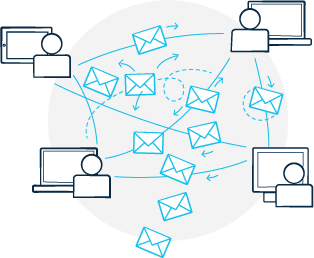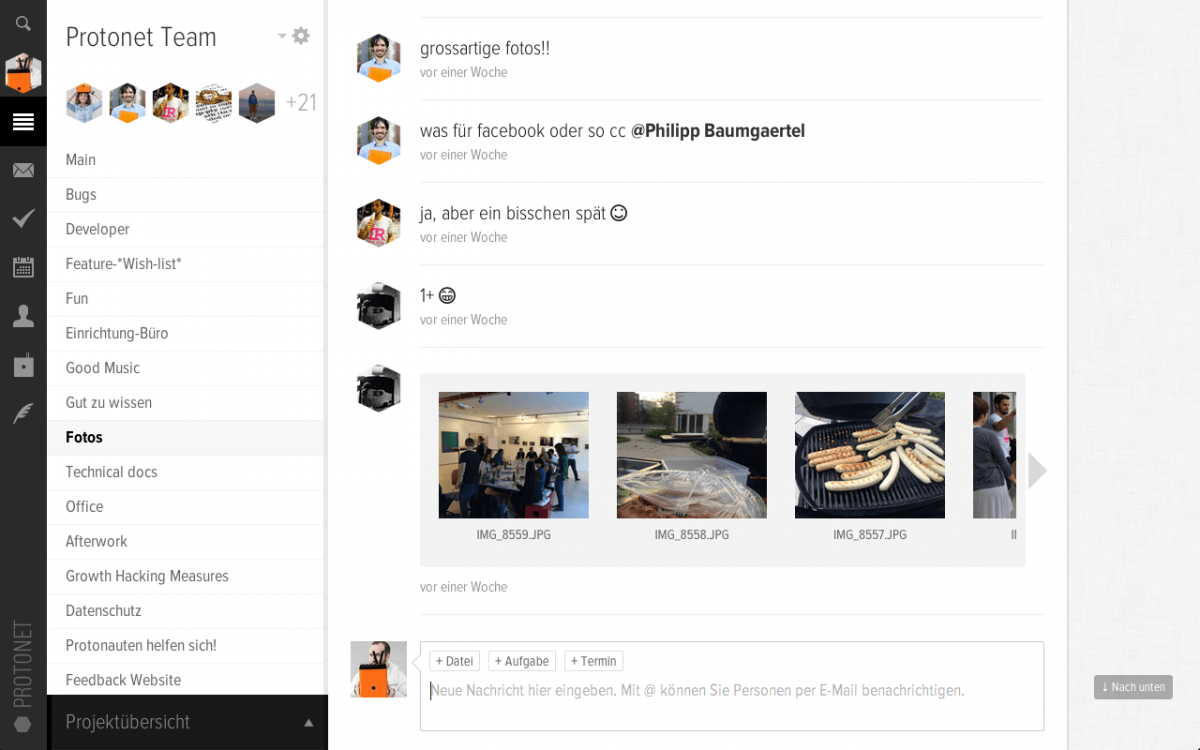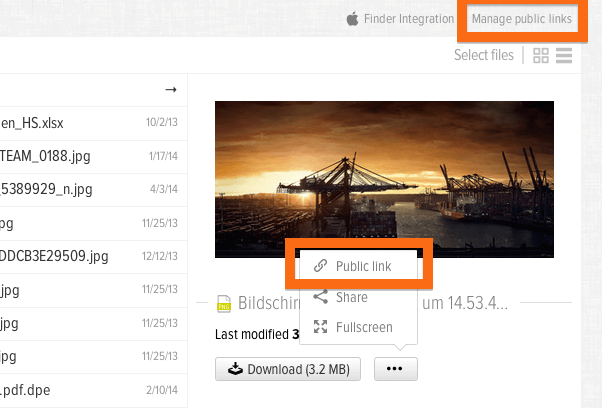5 Ways How Protonet Users Boost Their Productivity
By Protonet Team. Published 24. April 2014.
Protonet users range from Marketing agencies, video agencies, photographers, consultancies to lawyers. Clearly there are specific use-cases and advantages of using Protonet for each industry. In this blog post we’ve summarized the most popular productivity-hacks by using our software Protonet SOUL.
20/80 Principle: Get them out of the email swamp
It is a well-known fact that the 20/80 principle applies in almost every aspect in our lives. 20% of our friends bring us 80% of our satisfaction, 20% of our customers bring us 80% of the revenues and 95% of the emails you receive add less than 5% to the daily value you generate and that’s one thing worth recognizing.
We’ve found out that people who use Protonet have one huge advantage by simply picking out the 20% of the people they spend 80% of their time working with. Now that they communicate through Protonet SOUL, they have a clean slate with no clutter. We don’t expect our customers to invite every person they communicate with to Protonet, but we encourage all our customers to recognize who the valuable 20% of their contacts are whom they should be communicating with more efficiently and get them into Protonet SOUL.

One platform for communication
The second productivity boost from using Protonet SOUL is having an internal platform where everyone in a company can communicate on. For example here in Protonet we’ve got a “project” for each department, for example “Protonet Team” where we all communicate on, “Marketing & Sales Team” for our Marketing department, and so on. This alone has minimized our email usage to the point that we only use our email for contacting people we only sporadically talk with and aren’t on Protonet. This effect has been confirmed by most of our customers who’ve switched their internal communication to Protonet.
As mentioned in the introduction our customers profit from communicating with the 20% valuable contacts over Protonet by having a platform to keep everything within sight and easy reach. For example, we’ve created a “project” for collaborating with all our relevant external contacts we’re constantly in communication. We’ve got one “project” for communicating with our external creative agency and one with our photographer, while each department has a couple of projects like these, such as supply chain has with our enclosure manufacturers and development has with external freelancers. It is easy to know who’s got access to each of these projects and in case someone new joins the team it’s extremely easy to get this person into the loop by simply inviting him/her to the relevant “projects” in their area.

Project-based working & fast feedback loops
Creative agencies such as photographers, video agencies and consultancies typically work in projects. Until now they’ve been using emails and cloud storage solutions to manage these projects, which resulted in a constant email ping-pong and an unstructured document bin on some unknown cloud. With Protonet SOUL, they finally have one place where they can communicate with the project participants and share files triggering fast feedback loops. By simply sharing the new draft of a document or a new video-clip and getting 5 responses in real-time on Protonet, they have saved themselves half a dozen of emails and the follow-up mess a couple of months later when they start looking for that draft somewhere in the email inbox or outbox.
A Protonet-based project works as a catalyst for conversation and faster progress due to the live-time character and ease of use. Whoever has managed an event through social media knows how practical it is when all the participants can chat with each other in real time, thus reducing the difficulty of managing the project. If a project is exciting enough, it can seemingly manage itself.
Big file sharing
Protonet users love the way they can share big files now. Anyone who’s worked on a project which includes data sizes bigger than 10mb (2 high-res pictures, a dissertation with many attachments, a video etc.) knows that time when a project got to its knees because of the messy and unprofessional management of the data. Thus video agencies have resorted to uploading videos on online video platforms, consultancies resort to cloud based storage and some unfortunate photographers end up sending USB sticks. With Protonet it’s possible to share a 10GB file within a minute. What if we want to share this huge file with people outside of Protonet? Simply click on “make public link” and voilà, there it is. Post that link on Facebook, Twitter, where you want. That file is now reachable from everywhere. You can see how many times it’s been opened and you can deactivate it at any time thus making it reachable only with a password like before.

Privacy & security
Did you know that emails are actually even less safe than a postcard? Protonet users get peace of mind by knowing that the pictures, videos, documents and the communication are on their own servers. Yes, this isn’t directly linked to productivity, but we argue that you communicate more directly and are willing to share more data when you know that your message isn’t an open postcard or your picture is on some unknown server in an obscure country. Take lawyers, for example: they aren’t allowed to use any cloud-services due to obvious reasons. They had to resort on postal mail, live meetings and telephone calls. As compelling and dapper as it may seem, we’re in 2014 and they should have the chance to enjoy modern communication methods like everyone else. We’re happy that we’ve made that possible for them.
Are you a Protonet user and we didn’t mention your favourite productivity-hack? Send me a message to Jan at Protonet dot info. I’d love to hear from you.
Image Reference: squadmail.com

